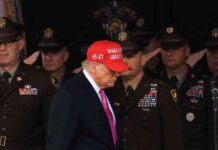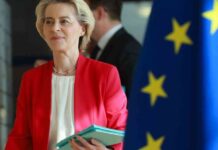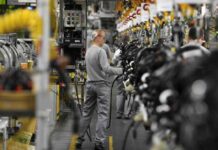Oliver Blume, der Mann mit den vollen 200 Prozent, hat die Automobilwelt im Sturm erobert. Seine Fähigkeit, zwei Dax-Konzerne, Volkswagen und Porsche, gleichzeitig zu leiten, sorgte lange Zeit für Spekulationen. Doch nun, nach einer glänzenden Karriere, plant der charismatische Porsche-Chef seinen wohlverdienten Ruhestand.
Der 29. September 2022 markierte einen besonderen Meilenstein in Blumes beruflicher Laufbahn. Mit strahlenden Augen verkündete er an diesem Donnerstag vor zweieinhalb Jahren vor einem begeisterten Publikum im überfüllten Handelssaal der Frankfurter Börse: „Ein Traum wird wahr.“ Draußen vor dem imposanten Börsengebäude reihte sich eine imposante Kollektion historischer Porsche-Sportwagen, während weiße Firmenfahnen im Wind wehten.
### Eine Ära geht zu Ende
Nach Jahren der Innovation und des Wachstums bei Porsche bereitet sich Oliver Blume nun darauf vor, das Steuer abzugeben und eine neue Ära einzuläuten. Seine charismatische Führung und sein unerschütterlicher Einsatz haben die Marke Porsche geprägt und zu neuen Höhen geführt. Doch wie wird sein Vermächtnis fortbestehen?
Experten zufolge stehen die nächsten Schritte bei Porsche bereits fest. Der Autobauer plant, sich wieder auf konventionelle Antriebe zu konzentrieren, um den Rendite-Einbruch zu stoppen. Diese Neuausrichtung zielt darauf ab, die Ertragskraft zu steigern und die Elektroziele vorübergehend zurückzustellen. Dieser Schritt folgt der Forderung des im Oktober entlassenen Finanzchefs und ist entscheidend für die Zukunft von Porsche.
Inmitten dieser strategischen Veränderungen bleibt die Frage, wer die großen Fußstapfen von Oliver Blume füllen wird. Sein Engagement und seine Innovationskraft haben Porsche geprägt und die Marke zu einem Synonym für Luxus und Leistung gemacht. Die Suche nach einem würdigen Nachfolger wird entscheidend sein für die Zukunft des Unternehmens.
### Ein Blick in die Zukunft
Während Oliver Blume sich auf seinen wohlverdienten Ruhestand vorbereitet, bleibt sein Vermächtnis als Porsche-Chef unvergessen. Seine Leidenschaft für exzellentes Design und technische Innovation hat die Automobilbranche geprägt und wird auch weiterhin für Inspiration sorgen. Mit Blick auf die kommenden Jahre werden die Weichen für die Zukunft von Porsche gestellt, und die Welt wird gespannt verfolgen, wie das Erbe von Oliver Blume fortgeführt wird.
In einer Welt, die von Veränderungen geprägt ist, wird die Automobilindustrie vor neuen Herausforderungen stehen. Doch mit der Leidenschaft und dem Engagement von Führungskräften wie Oliver Blume wird Porsche auch weiterhin an der Spitze der Branche bleiben. Sein Abschied markiert das Ende einer Ära, aber auch den Beginn eines neuen Kapitels in der Geschichte des legendären Sportwagenherstellers.
Oliver Blume mag als Porsche-Chef in den Ruhestand gehen, aber seine Vision und sein Einfluss werden noch lange in den Hallen des Unternehmens zu spüren sein. Seine Leidenschaft für Perfektion und Innovation hat Porsche geprägt und wird auch weiterhin die Zukunft des Unternehmens gestalten. Während wir uns von einem der größten Führungskräfte der Automobilbranche verabschieden, können wir sicher sein, dass sein Erbe für immer in den Herzen derer lebt, die er inspiriert hat.









